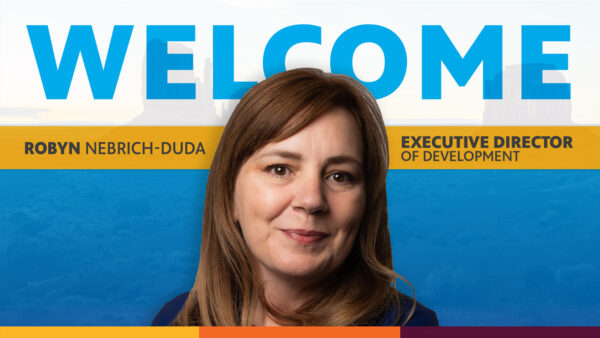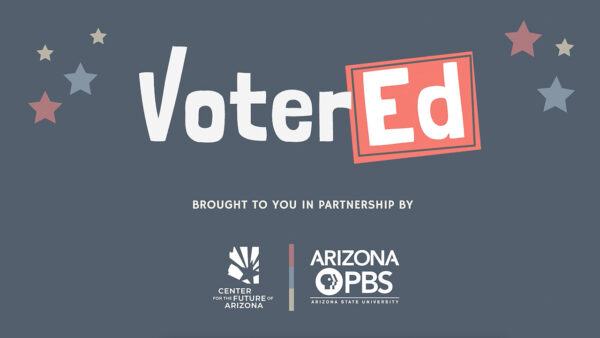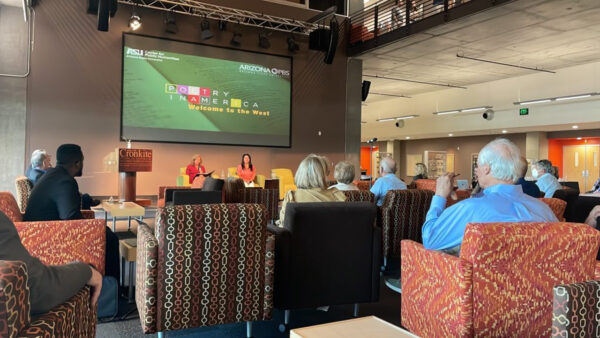Energy Quest USA – Earth: The Operators Manual and Powering The Planet
April 27, 2012
POWERING THE PLANET
FRIDAY, APRIL 27, 2012 AT 9PM
EIGHT, ARIZONA PBS
A documentary on climate change and sustainable energy
Watch and meet the people who are energizing America
(If you’re expecting lefty tree-huggers, you’re in for a shock)
Across the globe, people are looking for ways to save money and conserve energy at home. They’re busting the myth that the climate change debate has paralyzed us with uncertainty, distraction and helplessness. That myth-busting will be on full display on Friday, April 27, 2012 with Earth: The Operator’s Manual at 8 p.m. and Powering the Planet at 9 p.m. on Eight, Arizona PBS.
Earth: The Operators’ Manuel: An operators’ manual helps keep your car or computer running at peak performance. Earth science can do the same for the planet. To illustrate the evidence and the way forward, host Richard Alley takes viewers on a High-Definition trip around the globe, from New Zealand to New Orleans, telling the story of Earth’s climate history and our relationship with fossil fuels.
In New Zealand, we go deep into a crevasse in the Franz Josef Glacier to understand how the advance and retreat of massive glaciers during Earth’s Ice Ages are tied to changing levels of carbon dioxide. In Denver, Colorado, we peer over Alley’s shoulder at the National Ice Core Lab to see how records of temperature and atmospheric composition trapped inside chunks of ancient ice conclusively demonstrate that today’s levels of CO2 are higher than at any time in the past 400,000 years, due largely to our burning of fossil fuels over the past several hundred years.
Then it’s on to locations where developments in sustainable energy, and a diverse cast of inspiring Earth “operators,” are already proving it’s possible to do things differently. A solar power plant near Seville, Spain, will soon provide electricity to 200,000 homes – promising news for the sunniest place in the world, the deserts of the U.S. Southwest, where solar energy could account for 80% of Earth’s current use. On the North Island of New Zealand, a geothermal generating station is a reliable source of carbon-free energy.
Next up, Brazil, a land of cars running on flex fuels using sugarcane ethanol; then it’s on to the gas-guzzling city of Houston, which under the leadership of Mayor Annise Parker is working to support e-vehicles and get fifty percent of its power from wind by 2030. In a fascinating and surprising segment filmed at the Army’s Fort Irwin and the Marine Corps’ Camp Pendleton, members of the U.S. military explain why they have made it a priority to significantly reduce reliance on fossil fuels. And in Xi’an, Shanghai and Beijing, we see how China, the world’s largest energy consumer, is evolving from “the factory of the world” into “the clean-tech laboratory of the world,” in the words of Peggy Liu, chairperson of the Joint U.S.-China Collaboration on Clean Energy.
Powering the Planet is an eye-opening look at some of the world’s most important case studies in smart energy decisions, and a provocative assessment of what it takes to build a sustainable energy infrastructure — a process that spans decades and requires long-term government support.
In Spain and Morocco, large-scale solar farms and individual photovoltaic panels atop tents in the Sahara are beginning to bring the vast potential of the Sun down to Earth. In Brazil, abundant natural resources — Sun, rain and sugar cane — are transformed into efficient, sustainable biofuel, making Brazil the only nation whose cars could keep running if all gasoline were to vanish.
In Samsø, Denmark, and West Texas, citizens have taken sustainability — and economic realities — into their own hands by becoming stakeholders in wind turbines; instead of NIMBY, for them it’s “Yes, in my backyard.” In China, the “new empire of clean tech,” we witness a fast-paced, full-throttle approach to multiple sustainable energy technologies, including exclusive footage from GreenGen; the world’s most advanced low-carbon emissions power generation plant.
In a dramatic illustration of the need to cut emissions worldwide and avoid the possibility of an abrupt climate shift, host Richard Alley bungee-jumps off a bridge – and his CGI avatar goes for a wild ride on the “climate roller coaster.” Later, Alley walks us through Edinburgh, Scotland, to address a common concern about renewables — cost — by relating the transition to a cleaner energy system to the revolution in sanitation. It took about one percent of the world economy to develop an infrastructure for indoor plumbing; that’s roughly what will be required to get rid of “another kind of human waste” — carbon dioxide emissions from burning fuels.
But cost is only one factor, in addition to politics and psychology. The last two segments of the program look at dysfunctional energy choices made by the U.S. government juxtaposed with successful local initiatives in Alaska, Baltimore and Kansas. In the words of former head of Shell U.S.A. John Hofmeister, “You need to think of energy in a fifty-year timeframe, and our elected officials are thinking of energy in two-year election cycles. That’s ridiculous.”
Showcasing many ways in which great nations and small communities are finding sustainable solutions that provide for people and protect the Earth, Powering the Planet asks an urgent question: is America is making the right decisions for its own energy future?
)






















